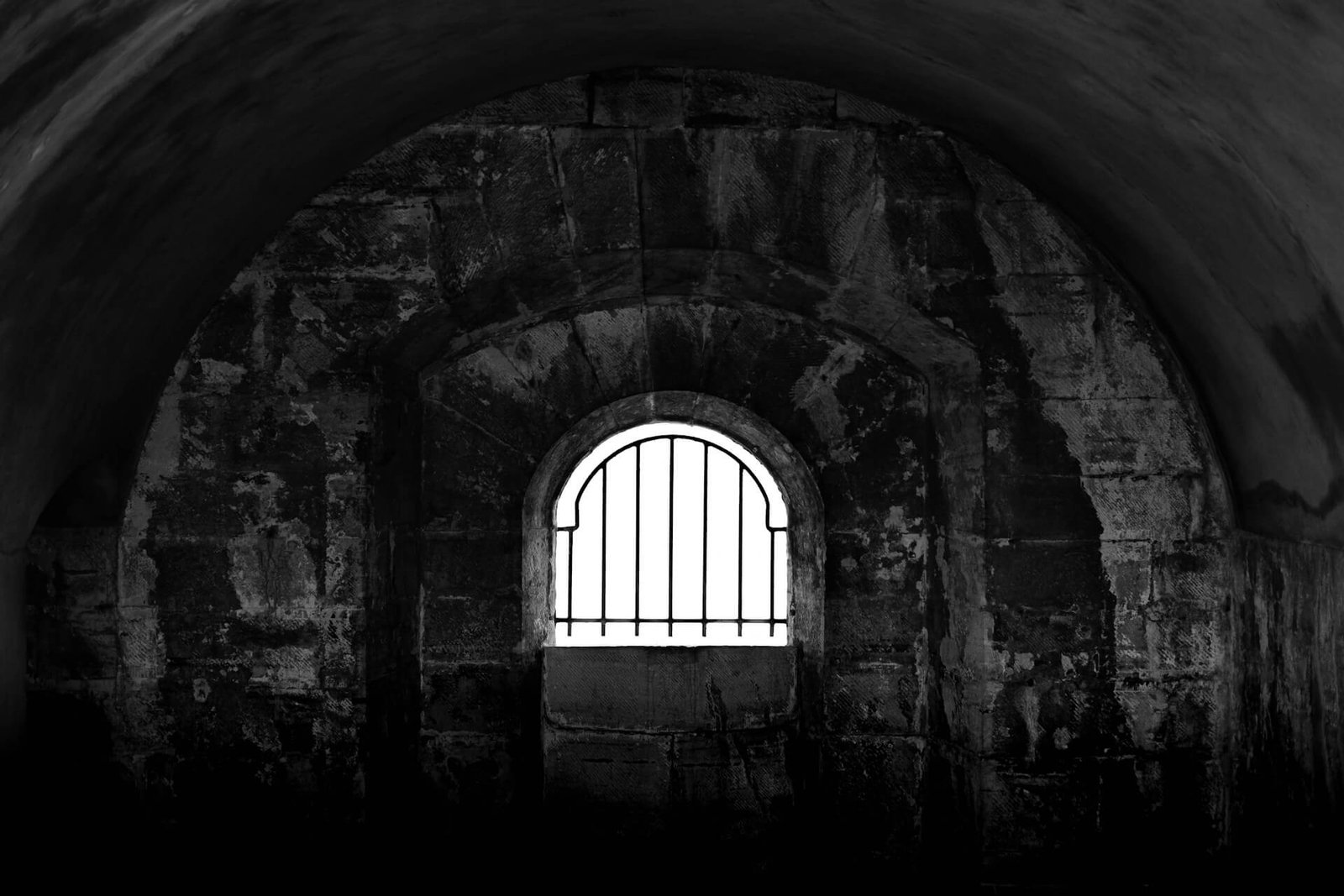In a world filled with uncertainty, fear and anxiety often creeps in, whispering doubts and stealing our peace. You’ve probably experienced it yourself—those moments when worry grips your heart tighter than you’d like to admit. Maybe it’s the knot in your stomach before a big meeting, or the endless what-ifs that keep you up at night. But here’s the good news: you don’t have to let anxiety rule your life. As a believer, you have access to a powerful antidote—faith in God. This post discusses how you can actively choose faith over fear, transforming anxious thoughts into a testimony of God’s faithfulness. We’ll explore real stories, practical steps, and biblical truths that will equip you to face life’s storms with renewed confidence. So, let’s embark on this journey together and see how faith can conquer even the deepest fears.
Acknowledging The Reality
First, let’s acknowledge something important: anxiety is real, and it’s okay to feel it. You might wake up in the middle of the night, your mind racing with thoughts about tomorrow’s challenges. Or perhaps you find yourself replaying past mistakes, convinced they’ll define your future. These experiences aren’t signs of weak faith; they’re part of being human in a broken world. Even the strongest believers wrestle with fear. However, the key lies in how we respond. When we lean into our faith, we invite God’s peace to replace the chaos. The Apostle Paul reminds us in Philippians 4:6-7, “Do not be anxious about anything, but in every situation, by prayer and petition, with thanksgiving, present your requests to God. And the peace of God, which transcends all understanding, will guard your hearts and your minds in Christ Jesus.” This scripture isn’t just a nice and popular verse. It’s a promise you can claim right now.
To build a strong foundation, we need to understand what we’re up against. Fear and anxiety aren’t the same, though they often team up. Fear acts as a natural response to immediate danger, like jumping back from a speeding car. It keeps us safe. Anxiety, on the other hand, lingers like a shadow, fueling ongoing worry about things that might never happen. In biblical terms, fear can serve a purpose, but unchecked anxiety erodes our trust in God. The Bible warns us about this in 2 Timothy 1:7: “For God has not given us a spirit of fear, but of power and of love and of a sound mind.” Notice how God contrasts fear with His gifts—power, love, and clarity. When anxiety takes hold, it distorts our view and makes us forget God’s sovereignty. However, by recognizing this distinction, we empower ourselves to address it head-on. Instead of letting fear dictate our actions, we can turn to faith, which reminds us that God holds the future.
Biblical Heroes Who Faced Fear
Throughout history, the Bible is filled with stories of people who faced overwhelming fear but chose faith instead. Take David, for instance. As a young shepherd boy, he stared down Goliath, a giant warrior who terrified Israel’s entire army. David could have cowered in fear, but he declared, “You come against me with sword and spear and javelin, but I come against you in the name of the Lord Almighty” (1 Samuel 17:45). What fueled his courage? Faith in God’s past faithfulness—the same God who helped him defeat lions and bears would deliver him now. David’s story shows us that faith doesn’t eliminate the giant; it equips us to face it.
Similarly, Elijah, one of God’s mighty prophets, hit rock bottom after a great victory. In 1 Kings 19, after calling down fire from heaven and defeating Baal’s prophets, Elijah fled in terror from Queen Jezebel’s threats. He hid in a cave, overwhelmed by despair and anxiety. “I have had enough, Lord,” he cried out (1 Kings 19:4). Sound familiar? Even prophets experience burnout and fear. But God didn’t abandon him. Instead, He whispered gently and reminded Elijah of His presence and purpose. This encounter renewed Elijah’s faith and propelled him back into ministry. From Elijah, we learn that anxiety can strike after highs, but God’s quiet voice restores our strength.
And let’s not forget Jesus’ disciples in the storm-tossed boat on the Sea of Galilee (Mark 4:35-41). Waves crashed, winds howled, and fear gripped their hearts. They woke Jesus, shouting, “Teacher, don’t you care if we drown?” Jesus calmly rebuked the storm, then turned to them: “Why are you so afraid? Do you still have no faith?” Their anxiety stemmed from forgetting who was with them—the Creator Himself. Jesus’ question challenges us today: In your storms, do you focus on the waves or the One who commands them? These biblical heroes weren’t superhuman; they were relatable people like you and me. Their stories inspire us because they prove that faith triumphs over fear, time and again.

Choosing Faith Over Fear in the Midst of Anxiety
So, what does it truly mean to choose faith over fear in the midst of anxiety? It’s not about denying our feelings or pasting on a fake smile. Faith acknowledges the fear but refuses to let it lead. Fear screams, “What if everything falls apart?” Faith whispers back, “Even if it does, God remains good and faithful.” This shift happens when we anchor our thoughts in God’s promises rather than our problems. Proverbs 3:5-6 urges us, “Trust in the Lord with all your heart and lean not on your own understanding; in all your ways submit to him, and he will make your paths straight.” Notice the active commands: trust, lean not, submit. Faith demands action—it invites us to surrender control to God.
Moreover, choosing faith reframes our perspective. Anxiety magnifies threats, making mountains out of molehills. Faith, however, zooms out to see God’s bigger picture. Remember Joshua and Caleb spying on the Promised Land? While others saw giants and felt terrified, they declared, “The Lord is with us. Do not be afraid of them” (Numbers 14:9). Their faith-focused eyes saw opportunity where others saw defeat. You can cultivate this too. Start by asking: What does God say about this situation? His Word becomes your lens, turning fear into fuel for growth. As you practice this, you’ll notice anxiety losing its grip, replaced by a quiet confidence that God works all things for good (Romans 8:28).
Steps to Overcome Anxiety
Now, let’s get practical. Overcoming fear and anxiety requires more than inspiration—it demands actionable steps rooted in faith. First, pray honestly. Don’t sugarcoat your worries; pour them out to God. Philippians 4:6-7 isn’t just advice—it’s a blueprint. When anxiety hits, pause and pray: “Lord, I’m scared about [specific fear]. Help me trust You.” Thanksgiving shifts your focus from lack to abundance. Try it next time worry strikes; you’ll feel God’s peace guard your heart like a sentinel.
1. Meditate on Scripture Daily
God’s Word acts as a sword against anxious thoughts (Ephesians 6:17). Start with verses like Psalm 34:4: “I sought the Lord, and he answered me; he delivered me from all my fears.” Or Isaiah 41:10: “So do not fear, for I am with you; do not be dismayed, for I am your God. I will strengthen you and help you; I will uphold you with my righteous right hand.” Write them on sticky notes, set phone reminders, or recite them during commutes. Over time, these truths rewire your mind, replacing fear with faith.
2. Worship Through Fear
When anxiety overwhelms, turn on worship music or declare God’s praises aloud. King Jehoshaphat did this in 2 Chronicles 20, sending singers ahead of his army into battle. As they praised, God fought for them. Worship reminds your spirit that God reigns supreme. Try creating a playlist of songs like “It Is Well” or “No Longer Slaves”—let the lyrics drown out fear’s noise.
3. Replace Lies With Truth
Anxiety often peddles deceptions: “You’re not enough,” or “Disaster awaits.” Counter them with God’s declarations. For instance, if fear says, “You’ll fail,” respond with Jeremiah 29:11: “For I know the plans I have for you… plans to prosper you and not to harm you.” This cognitive shift, grounded in faith, builds resilience. Keep a journal: On one side, list anxious thoughts; on the other, scriptural truths. Review it regularly to track your progress.
Building a faith routine solidifies these practices. Dedicate time each morning for quiet reflection—read a devotional, journal gratitude, and pray. A gratitude lists combat anxiety by highlighting God’s blessings. For example, note three things you’re thankful for daily; this trains your brain to spot goodness amid chaos. Consistency matters; even five minutes starts the habit. As you integrate these steps, you’ll experience fear and anxiety transforming into opportunities for deeper intimacy with God.
Embracing Community and Vulnerability
But remember, you don’t walk this path alone. Anxiety loves to isolate, convincing us we’re the only ones struggling. Yet, faith reminds us we’re part of Christ’s body. Share your burdens with trusted friends, a small group, or a pastor. Galatians 6:2 says, “Carry each other’s burdens, and in this way you will fulfill the law of Christ.” Vulnerability fosters healing; when you open up, others often share their stories, creating a web of support. If anxiety feels debilitating, seek professional help, like counseling. God uses therapists and medication as tools in His healing arsenal. Integrating faith with mental health care honors God’s design for wholeness. Don’t feel guilty—many believers thrive this way.
Hold Onto Hope
As we wrap up, hold onto this hope: Anxiety doesn’t define you; God’s love does. You’ve got the power to choose faith over fear every day. Start small—pick one step from this post, like memorizing a verse or praying honestly. Watch how God moves. As Jesus said in John 14:27, “Peace I leave with you; my peace I give you. I do not give to you as the world gives. Do not let your hearts be troubled and do not be afraid.” Claim that peace today.
Faith Over Fear Toolkit
To add unique value, here’s your Faith Over Fear Toolkit—a curated resource to equip you practically:
1. Scripture Affirmations: You can print these and affirm them daily.
- “God has not given me a spirit of fear but of power, love, and a sound mind.” (2 Timothy 1:7)
- “When I am afraid, I put my trust in you.” (Psalm 56:3)
- “Cast all your anxiety on him because he cares for you.” (1 Peter 5:7)
- “The Lord is my light and my salvation—whom shall I fear?” (Psalm 27:1)
- “Be strong and courageous. Do not be afraid; do not be discouraged, for the Lord your God will be with you wherever you go.” (Joshua 1:9)
2. Journaling Prompts: Use these to process your fears.
- What specific anxiety am I facing today, and what does God’s Word say about it?
- How has God shown faithfulness in my past? How can that build my faith now?
- What lie is fear telling me, and what truth from scripture counters it?
- Five things I’m grateful for right now—how do they reflect God’s goodness?
- If I fully trusted God with this fear, how would my actions change?
3. Daily Faith Routine Checklist:
- Morning: Read one scripture affirmation and pray for the day.
- Midday: Pause for a quick gratitude reflection.
- Evening: Journal one win where faith overcame fear.
- Weekly: Share a struggle with a trusted friend and pray together.
Reflection Question: What fear are you surrendering to God today? Take a moment to write it down and pray over it. Remember, every step forward in faith weakens anxiety’s hold on you.
If this post resonates, save it for tough days or share it with a friend battling fear or anxiety. You’re not just surviving—you’re thriving in God’s grace. Let’s keep choosing faith together.





